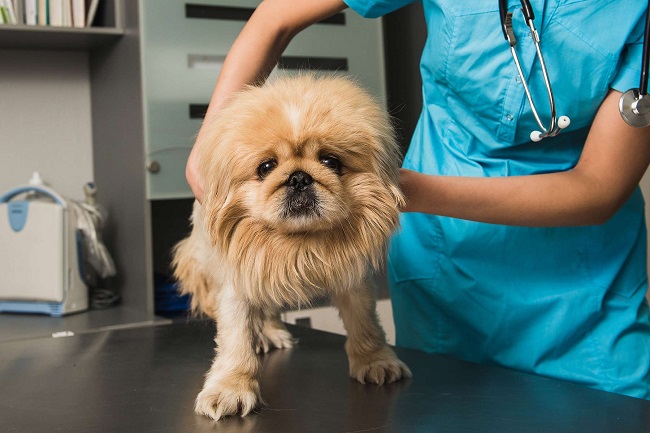Dog parents are often well-acquainted with their pet’s bathroom habits, including the color, consistency, and frequency of their poop. So when your dog’s poop suddenly turns black, it’s understandable to be concerned.
While it could be a benign dietary change, black dog poop can also be a sign of underlying health issues that require immediate attention. Let’s delve into the various reasons behind black dog poop and the steps you should take in such scenarios.

Possible Causes of Black Dog Poop
Here are some of the possible causes of black dog poop:
Read Also:
Dietary Changes and Foods
An abrupt change in your dog’s diet can result in a change in stool color. Foods like liver, black beans, or certain high-protein meats may darken the color of your dog’s poop. Also, dogs indulging in scavenger behavior might consume things that could lead to black feces.
Medications and Supplements
Certain medications, such as Pepto-Bismol or iron supplements, can darken your dog’s stool. If you’ve recently started your dog on new medication, this could be the cause.
Gastrointestinal Bleeding
The primary and most concerning reason for black poop is gastrointestinal bleeding. This condition is referred to as melena, where digested blood turns the stool black and tarry. Melena could be indicative of serious conditions like ulcers, tumors, or inflammation in the digestive tract.
Identifying the Signs of Melena
The key distinguishing feature of melena is its tarry, sticky consistency coupled with a distinctive, unusually foul smell.
If you notice these signs, it’s imperative to contact your vet immediately, as melena could be a sign of a life-threatening condition.
Diagnosing and Treating Black Dog Poop
Here are some of the diagnosis and treatment of black dog poop:
Diagnostic Tests
Upon visiting the vet, they may recommend a variety of tests to identify the root cause, including blood tests, ultrasound, radiographs, or endoscopy.
Treatment
Treatment will depend on the underlying cause. For instance, if an ulcer is the culprit, your vet may prescribe medications to help heal the ulcer and soothe the GI tract. In more severe cases, such as tumors, surgery may be required.
Preventative Measures: How to Avoid Black Dog Poop
Here are some preventive measures of black dog poop:
Balanced Diet
Ensuring your dog has a balanced diet is key in preventing many health issues. Avoid any sudden changes in your pet’s diet, which can disrupt their digestive system, potentially leading to abnormal feces.
Regular Deworming
Parasites can sometimes be the cause of gastrointestinal bleeding, hence the importance of regular deworming. Your vet can provide a suitable deworming schedule based on your dog’s needs.
Understanding Digestive Health in Dogs
Here are some digestive health in dogs:
Importance of Good Digestive Health
Maintaining good digestive health in your pet will not only help prevent black poop but also contribute to their overall health. A healthy digestive system allows your dog to absorb all the essential nutrients from their food efficiently.
Probiotics for Dogs
Just like in humans, probiotics can support your dog’s digestive health. They aid in the development of beneficial gut flora, leading to improved digestion and nutrient absorption. Always consult your vet before starting any new supplement regimen.
When to Seek Veterinary Care
Changes in your dog’s poop, whether it’s in color, consistency, or frequency, should always warrant a call to the vet.
Especially with black poop, where the cause could potentially be life-threatening, it’s always best to err on the side of caution.
Read Also:
Conclusion
While black dog poop can be alarming, it’s important to remember that not all instances indicate a medical emergency. However, it’s always crucial to consult with your vet if you notice changes in your dog’s poop color to rule out any serious health concerns.
Regular check-ups, a balanced diet, and maintaining a safe environment for your pet will go a long way in ensuring their well-being.
























